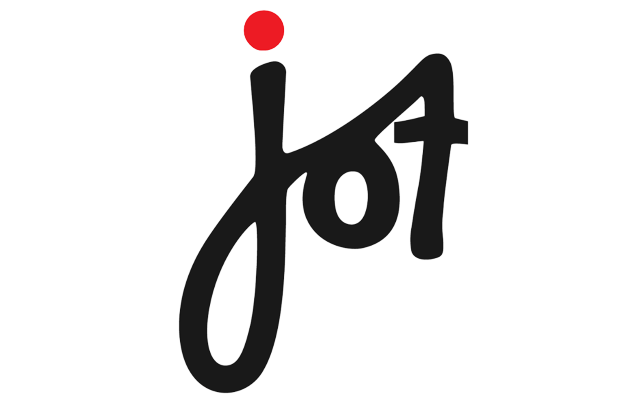1. What Does It Mean to Become the Best Version of Yourself?
Becoming the best version of yourself is a deeply personal journey that revolves around self-awareness, growth, and continuous improvement. It’s about reaching your full potential by embracing your strengths and working on your weaknesses. But how exactly can you embark on this journey? In this article, we’ll explore actionable steps, backed by research and personal development techniques, to help you become the best version of yourself.
2. The Power of Self-Awareness
Understanding Your Strengths and Weaknesses
The first step in any self-improvement journey is self-awareness. Knowing your strengths allows you to leverage them while acknowledging your weaknesses helps you address areas for improvement. Tools like personality tests and journaling can aid in this process, giving you insights into your behaviors, habits, and thought patterns.
How to Improve Emotional Intelligence
Emotional intelligence is crucial for personal and professional success. It involves being aware of your emotions, understanding them, and managing them effectively. Practice empathy, active listening, and reflection to enhance your emotional intelligence.
3. Setting Clear and Attainable Goals
SMART Goal Setting for Personal Growth
Goals give you direction. To become the best version of yourself, you need to set clear, realistic, and attainable goals. The SMART method—Specific, Measurable, Achievable, Relevant, and Time-bound—is a proven framework to ensure your goals are well-defined and reachable.
Long-term vs. Short-term Goals
Having a mix of long-term and short-term goals can provide a balance between dreaming big and maintaining daily motivation. Long-term goals outline your ultimate aspirations, while short-term goals keep you focused on what you need to accomplish now.
4. Cultivating Positive Habits
The Importance of Habits in Personal Development
Habits are the building blocks of success. Good habits can transform your life, but it takes time and consistency to develop them. Identify the habits that align with your goals and work towards incorporating them into your daily routine.
How to Build and Sustain New Habits
Building habits requires patience and commitment. Start small, focus on consistency, and use habit-tracking tools to monitor your progress. Celebrate your wins, no matter how small, to keep yourself motivated.
5. Physical Health and Wellbeing
The Connection Between Physical Health and Self-Improvement
Physical health is often linked to mental and emotional well-being. A healthy body supports a healthy mind, and vice versa. Prioritize regular exercise, balanced nutrition, and adequate sleep to boost your physical and mental performance.
Healthy Eating and Exercise Routines
Simple adjustments to your diet and exercise routines can have profound effects on your well-being. Incorporate more fruits, vegetables, and whole foods into your meals, and aim for at least 30 minutes of physical activity each day.
6. Mental Health and Mindfulness
Managing Stress and Anxiety
In today’s fast-paced world, managing stress and anxiety is essential for personal growth. Practice stress-reducing techniques such as deep breathing, journaling, or seeking professional help when necessary.
Mindfulness and Meditation Techniques
Mindfulness and meditation are powerful tools to center your thoughts, reduce anxiety, and improve focus. Even dedicating just 10 minutes a day to mindful practices can make a noticeable difference in your mindset.
7. Continuous Learning and Growth
The Importance of Lifelong Learning
Lifelong learning is essential for self-improvement. Whether through formal education or personal hobbies, always seek out opportunities to expand your knowledge. This not only makes you more adaptable but also keeps your mind sharp.
How to Develop a Growth Mindset
A growth mindset is the belief that you can improve and develop your abilities through effort and learning. Embrace challenges and persist in the face of setbacks to nurture this mindset, which will help you overcome obstacles on your journey.
8. Surrounding Yourself with Positive Influences
The Impact of Your Social Circle on Self-Improvement
Who you spend your time with has a significant effect on your personal development. Positive influences can encourage and motivate you, while toxic relationships may hinder your growth. Seek out people who uplift and inspire you to become the best version of yourself. This may involve distancing yourself from negative influences, even if it’s difficult.
How to Cultivate Meaningful Relationships
Building strong, meaningful relationships is key to personal fulfillment. Be open to forming connections with people who share similar values and interests. Nurture these relationships through active communication, empathy, and mutual respect. Surrounding yourself with the right people will foster your growth and push you towards your goals.
9. Practicing Gratitude
Why Gratitude is Key to Becoming a Better Version of Yourself
Gratitude is a powerful tool that can shift your mindset from focusing on what you lack to appreciating what you have. Regularly practicing gratitude increases positivity, reduces stress, and promotes well-being. When you’re grateful, you’re more likely to focus on progress rather than perfection.
Daily Gratitude Practices
Incorporating gratitude into your daily routine doesn’t require much time. You can start by keeping a gratitude journal, where you jot down three things you’re grateful for daily. Over time, this practice can enhance your emotional resilience and help you maintain a positive outlook, even in challenging times.
10. Overcoming Self-Doubt and Limiting Beliefs
Recognizing and Challenging Negative Thoughts
Self-doubt and limiting beliefs are often the biggest barriers to personal growth. These negative thoughts can keep you from reaching your full potential. The first step in overcoming self-doubt is to recognize when it’s happening. Once you’re aware, you can challenge these beliefs by questioning their validity and reframing them with positive affirmations.
How to Build Self-Confidence
Building self-confidence takes time and effort, but it’s essential for becoming the best version of yourself. Start by setting small, achievable goals and celebrating your successes along the way. Take time to reflect on your strengths and accomplishments, and avoid comparing yourself to others. Self-confidence grows as you continuously prove to yourself that you are capable of growth and success.
11. Developing Time Management Skills
Prioritizing Tasks and Staying Focused
Time management is a critical skill for anyone looking to improve themselves. When you prioritize your tasks and stay focused on what matters most, you maximize productivity and reduce stress. Break down larger tasks into smaller, manageable steps, and focus on completing them one at a time. The more organized you are, the more you can accomplish.
Tools for Effective Time Management
There are various tools available to help you manage your time more effectively. Use apps like Trello, Todoist, or Google Calendar to organize tasks and set deadlines. Time-blocking is another useful technique that involves dedicating specific periods for specific tasks. This will help you stay on track and avoid distractions.
12. Embracing Failure and Learning from Mistakes
The Role of Failure in Personal Growth
Failure is a natural and necessary part of growth. It’s through failure that we learn valuable lessons and develop resilience. Rather than fearing failure, embrace it as an opportunity to improve. The most successful people often experience setbacks, but their ability to bounce back sets them apart.
How to Recover from Setbacks
When you encounter a setback, it’s important to take time to reflect on what went wrong and what you can learn from the experience. Focus on what you can control and take actionable steps to improve. Resilience is about maintaining a positive attitude in the face of adversity and knowing that each failure brings you one step closer to success.
13. Giving Back to Others
How Helping Others Contributes to Self-Improvement
Helping others can provide a sense of fulfillment and purpose that goes beyond personal gain. Whether through volunteering, mentoring, or simple acts of kindness, giving back can improve your mental health and well-being. Additionally, contributing to your community helps you build connections and enhances your sense of belonging.
Volunteering and Community Involvement
There are numerous ways to give back to others. Volunteering for a cause you’re passionate about, mentoring someone, or even offering support to friends and family are all ways to positively impact the lives of others. This not only enriches their lives but also boosts your self-esteem and personal growth.
14. Celebrating Progress, Not Perfection
The Importance of Acknowledging Small Wins
Personal growth is a journey, not a destination. Along the way, it’s important to acknowledge and celebrate your progress, no matter how small it may seem. Every step forward is a victory, and recognizing these achievements keeps you motivated and prevents burnout.
Avoiding the Perfectionism Trap
Striving for perfection can be detrimental to your mental health and personal growth. Perfectionism often leads to procrastination, self-criticism, and dissatisfaction. Instead of aiming for perfection, focus on progress and continuous improvement. Remember that nobody is perfect, and it’s the journey that matters most.
15. Conclusion: Bringing It All Together to Become the Best Version of Yourself
Becoming the best version of yourself is an ongoing process that involves self-awareness, growth, and a commitment to continuous improvement. By practicing gratitude, setting achievable goals, building positive habits, and surrounding yourself with uplifting influences, you’ll be well on your way to reaching your full potential. Remember, the key is not to aim for perfection but to celebrate progress and keep moving forward.
Frequently Asked Questions (FAQs)
1. How can I start becoming the best version of myself?
Start by practicing self-awareness. Understand your strengths and weaknesses, set clear goals, and work on building positive habits. Personal growth is a gradual process, so take it one step at a time.
2. What are some habits that can help me improve myself?
Some effective habits include practicing gratitude, maintaining a healthy lifestyle, prioritizing lifelong learning, and managing your time efficiently. Consistency in these habits will lead to long-term growth.
3. How do I overcome self-doubt on my growth journey?
Recognize negative thoughts when they occur and challenge them with positive affirmations. Building self-confidence by setting small goals and celebrating achievements can also help you overcome self-doubt.
4. Can failure help me become a better version of myself?
Absolutely! Failure teaches valuable lessons and builds resilience. Embrace failure as part of the growth process, and use it as an opportunity to learn and improve.
5. How does mindfulness contribute to personal growth?
Mindfulness helps you stay present, manage stress, and improve focus. Regular mindfulness practices, such as meditation, can lead to greater emotional balance and clarity in your personal development journey.
6. Why is it important to celebrate progress instead of aiming for perfection?
Focusing on progress keeps you motivated and helps you appreciate your achievements. Perfectionism can lead to burnout and dissatisfaction, so it’s healthier to celebrate your efforts and growth along the way.




